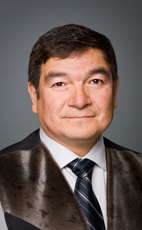Madam Chair, in addition to that question, the important question is around the accomplishments in research on organ transplantation in Canada.
In 2010 the Government of Canada, through the Canadian Institutes of Health Research, committed over $10 million to research directed to transplantation. Every year thousands of Canadians receive transplants of solid organs. Transplantation is now the preferred treatment for end-stage organ failure and stem cell transplantation is an established therapy for many conditions and can be a cure certain cancers.
Regenerative medicine is a growing field in Canada. This emerging field is allowing scientists and engineers to create organs to be regrown from the patient's own cells. This research involves harnessing the power of stem cells, which can renew themselves and differentiate into many other cell types. This research field is early stages and will take time to fully develop.
However, some regenerative therapies are already being used in clinics today. As our understanding of stem cell advances, it is becoming clear that this field has the potential to transform medicine and provide treatments for the world's most devastating diseases.
Canadian researchers are making important discoveries about how stem cells function at the genetic level. This new knowledge will allow us to develop new therapies for important health issues, such as health disease, muscle disease, multiple sclerosis, vision loss, diabetes, brain and spinal cord injuries.
For example, Dr. Ren-Ke Li from the University of Toronto is working on identifying the optimal cell type and conditions for transplantation to regenerate damaged heart muscle. His research is using cell and gene therapy to promote blood vessel formation and to prevent the complications of heart surgery. If successful, cell transplantation should significantly improve heart function, increase patient longevity and quality of life.
CIHR has also supported the research of Dr. Jevnikar and his team from the University of Western Ontario. They are looking at how and why organs and tissues are damaged during transplantation in order to find ways to extend the life of transplanted organs.
Despite current anti-rejection drugs, transplanted kidneys, for instance, may last only 10 years in half the patients. This research initiative will lead to innovative treatments that will improve the lives of transplant patients in Canada.

